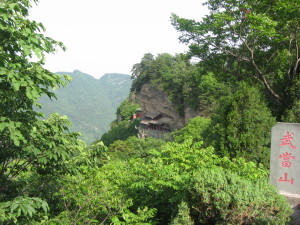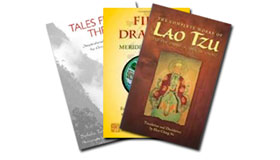Solala Blog for 5/1
0Just One Flower

Toyotomi Hideyoshi had risen from very humble ranks through a combination of guile, cunning, and great courage to become ruler of all of Japan. As a former low-level samurai he could be very fierce. Having been raised on the battlefields of Japan, Hideyoshi was a man of great strength, both of body as well as spirit. He always held himself erect and proud, like the great samurai warrior he was. But this fierce warrior was also a great lover of tea and tea ceremony. Like many samurai of his day, Hideyoshi felt the austere and formal tea ceremony gave him the space and time to not only relax and let down the many stresses of being a ruler but also gave him a window into another way of being, of what the monks called Zen Mind. In the teahouse he could become a humble tea drinker, at one with the ritual and with the eternal moment.
While he was not the actual emperor of Japan, he was the ruling regent, and had great power. He had once served tea himself to the emperor himself in a small teahouse inside the Imperial Palace. Once he had served tea to 803 people at a great tea ceremony held in Kyoto in 1587. He even had a tea pavilion built of gold that he could take with him when he traveled.
But Hideyoshi, at least partly, was still a humble man who had not forgotten his simple origins and spent a great deal of his time meditating in a small hut when he was not lavishly entertaining his many friends and political allies.
Rikyu was the most famous tea master of his time. His tea ceremony is said to have had great spiritual depth. It was he who had done away with the elaborate and costly tea bowls from China and Korea and had created the simple, rustic style of pottery called raku. He had brought a sense of Zen simplicity to the tea ceremony, using simple bamboo utensils and cutting to the very essence of Tea Mind.
At one point Hideyoshi had petitioned the emperor for permission to give Rikyu the title of koji, or “enlightened recluse” so that he might enter the Imperial Palace as Hideyoshi’s special tutor. Thus Rikyu had risen to a very high social position. Some said that it was indeed too high.
Some said that the promotion had gone to Rikyu’s head and he had become arrogant. Sometimes Hideyoshi tested his tutor, giving him difficult tasks that were supposed to humble the great tea master. But Rikyu always managed to handle them with ease. Hideyoshi was torn between his respect for Rikyu as his teacher and unease with him for being too brilliant.
One time Rikyu invited Hideyoshi to view his morning glories early one spring morning. Rikyu’s garden was famous throughout the capital for its profusion and beauty. His flowers were said to grow in such abundance that they reflected the sun. Hideyoshi had not been to Rikyu’s teahouse in some time and could not help but be a bit excited about seeing the famous garden.
Even in all his years as a warrior, as drenched in blood as they were, Hideyoshi had always loved flowers. Sometimes, before a great battle, as he stood at the edge of a great field of flowers, soon to become crushed by thousands of bodies of men and horses and turned into a charnel ground, he had reflected on the transience and changeableness of life as symbolized by these flowers that stood so beautifully and tenderly under the sun.
So it was with joy and pleasurable anticipation that Hideyoshi traveled to Rikyu’s home that morning. But imagine his surprise when, after passing through the outer gate of the garden, he discovered that Rikyu had cut each and every flower in the garden. There was nothing there but hundreds of severed stems. Hideyoshi looked around, trying to conceal his great disappointment. He could not imagine what had come over Rikyu, but he kept his samurai composure and greeted the old tea master with as much humbleness as he could muster.
Then, after passing through the low entrance to the teahouse, Hideyoshi looked at the alcove to find just one morning glory, sitting in a simple bamboo vase. Ah, he thought, the old fox has outdone me once again! Then he settled back and allowed his mind to relax and become one with the flower.
From Cha Dao by Solala Towler


Comments